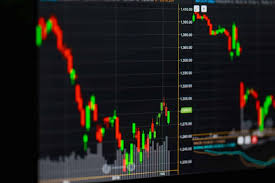
In the dynamic world of forex trading, having a reliable forex trading account Trading Brokers account is crucial for maximizing your potential profits and minimizing losses. Forex trading, or currency trading, allows traders to capitalize on the fluctuations in currency values. To partake in this market, you need to understand the different types of forex trading accounts available and how to choose the one that fits your trading style and financial goals.
What is a Forex Trading Account?
A forex trading account is a platform provided by brokers to enable traders to buy and sell currencies. It is similar to a bank account, but instead of holding cash, it holds your trading capital and provides access to costs associated with trading activities, such as spreads and commissions. Choosing the right type of account is crucial for your trading success and can impact your trading performance significantly.
Types of Forex Trading Accounts
Forex brokers offer several types of trading accounts, each tailored to different types of traders. Understanding these account types is essential before starting your trading journey.
1. Standard Account
The standard trading account is typically the most common type. It usually requires a higher initial deposit than other accounts but offers the ability to trade large quantities of currency. The standard account provides a lot size of 100,000 units of currency, making it suited for experienced traders with substantial capital.
2. Mini Account
A mini account allows traders to operate with smaller positions. It usually requires a lower minimum deposit than standard accounts and allows trades of 10,000 units. This option is more suitable for beginner traders who want to learn and practice in the forex market without risking significant amounts of money.
3. Micro Account
Micro accounts offer even smaller trading sizes, usually at 1,000 units per trade. They are ideal for those who want to start trading forex with minimal investment. The lower risk and capital requirement of micro accounts make them a popular choice for new traders who are testing their trading strategies.
4. ECN Account

The ECN (Electronic Communication Network) account is designed for advanced traders. It offers direct market access and typically has lower spreads. Traders using an ECN account can enjoy transparency and the ability to see real-time prices from different liquidity providers. However, these accounts may have higher commissions and require a larger minimum deposit.
Factors to Consider When Choosing a Forex Trading Account
When selecting a forex trading account, consider the following factors:
- Minimum Deposit: Different accounts require different minimum deposits. Make sure the required amount is within your budget.
- Leverage: Understand the leverage options offered by the broker. High leverage can enhance your profits, but it also increases the risk of losses.
- Trading Costs: Examine spreads, commissions, and any other associated fees. Lower trading costs can have a significant impact on your overall profitability.
- Trading Platform: Ensure that the trading platform is user-friendly and equipped with the necessary tools for analysis and execution.
- Customer Support: A responsive support team can help resolve any issues you may encounter quickly.
How to Open a Forex Trading Account
Opening a forex trading account typically involves the following steps:
- Research and Choose a Broker: Look for a reputable forex broker that meets your trading needs and offers the account type you prefer.
- Fill Out the Application: Complete the online application form, providing your personal information, trading experience, and financial details.
- Verification: Most brokers will require verification of your identity, which may include submitting documents such as an ID and proof of address.
- Deposit Funds: Once your account is verified, you can deposit funds using your preferred payment method. Ensure you understand the deposit limits and fees.
- Start Trading: After funding your account, log in to the trading platform, set up charts, strategies, and begin trading.
Best Practices for Successful Forex Trading
To elevate your trading career in the forex market, consider implementing the following best practices:
- Develop a Trading Plan: A solid trading plan outlines your trading strategy, risk management techniques, and profit targets.
- Practice with a Demo Account: Before risking real money, practice your strategies on a demo account to gain confidence and refine your approach.
- Stay Informed: Keep up with economic news, market trends, and geopolitical events, as these can significantly impact currency prices.
- Use Risk Management: Always use stop-loss orders and determine the appropriate position size for your trades.
- Review and Adjust: Regularly review your trading performance and make necessary adjustments to your strategy if it’s not yielding the desired results.
Conclusion
In conclusion, a forex trading account is your gateway to the currency markets. By understanding the various types of accounts available, the factors to consider when selecting a broker, and the best practices for trading, you can set yourself up for a successful trading journey. Remember, for every trader, success in the forex market comes from a combination of education, experience, and disciplined trading practices.
